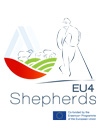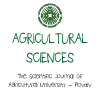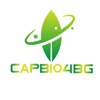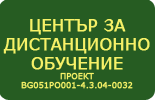General microbiology
|
Course title: |
General microbiology |
|
|
Course code: |
RZGMB |
|
|
ECTS: |
4 |
|
|
In-class hours |
Lectures: |
30 |
|
Laboratory work/Tutorials: |
15 |
|
|
Self-preparation hours |
Practical training: |
- |
|
Other: |
55 |
|
|
Total hours: |
100 |
|
|
Language: |
English |
|
|
Study cycle: |
Bachelor |
|
|
Semester: |
Winter & Summer |
|
|
Faculty: |
Faculty of Plant Protection and Agriecology |
|
|
Name of the lecturer(s): |
Assoc. Prof. Yordanka Kartalska, PhD |
|
|
Mode of delivery: |
Face-to-face, distance learning |
|
|
Prerequisites: |
No |
|
|
Learning outcomes of the course unit: |
The main objective of the curse is to introduce the students to general microbiology and to obtain certain knowledge regarding the structure, metabolism, physiology, nutrition, etc. During the course, the students will understand the basic principles in the microbial world, the morphology and development, the nutrient requirements and growth of microorganisms, as well as their role for soil fertility, self-recovery and biological recultivation of soils. |
|
|
Course contents: |
Topic 1. Origin and historical data of microbiology – 1 hour Topic 2. Structure of prokaryotic cell – 6 hours Topic 3. Genetics of bacteria – 3 hours Topic 4. Morphology and systematics of fungi, yeasts, actinomycetes and viruses – 4 hours. Topic 5. Metabolism of microorganisms – 4 hours. Topic 6. Transformation of compounds by microorganisms during carbon cycle – 3 hours. Topic 7. Transformation of compounds by microorganisms during nitrogen cycle – 3 hours. Topic 8. Biological fixing of atmospheric nitrogen – 3 hours. Topic 9. Biotechnological applications of contemporary microbiology – 3 hours. |
|
|
Recommended or required reading: |
1. Madigan, M. T., J. Martinko, J. Parker. Brock. Biology of microorganisms. 2000. 2. Morello, J.A., Granato, P.A., Mizer, H.E. Laboratory manual and workbook in microbiology. 7th edition, McGraw Hill, 2002. 3. Moat, A.G., Foster, J.W., Spector, M.P. Microbial physiology. 4th edition. Wiley-Liss, Inc. 2002. 4. Prescott, L.M. Microbiology, 5th edition. McGraw-Hill. 2002. 5.Shilev, S., Naydenov, M., Sancho Prieto, M., Sancho, E.D., Vassilev, N. 2012. PGPR as Inoculants in Management of Lands Contaminated with Trace Elements. pp.: 259-277. In: Maheshwari D.K. (ed.) Bacteria in agrobiology: stress management. Springer Berlin Heidelberg, ISBN: 978-3-642-23465-1. |
|
|
Planned learning activities and teaching methods: |
Study process includes the next teaching forms: lectures, practical and laboratory work and other preparation, including self-preparation. During the lectures will be presented a lot of presentations, tables, figures and diagrams. Students work independently at their work place under the leading of lecturer for the best interpretation of learning practical material. The certification of the semester is done in the case of regular attendance of lectures and practical exercises. |
|
|
Assessment methods and criteria: |
The exam is made on basis of evaluations during the semester and final written exam, as well as a test. |
|
 - Събития по случай 80-я юбилей на АУ
- Събития по случай 80-я юбилей на АУ











